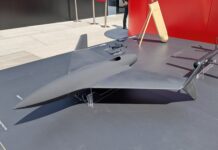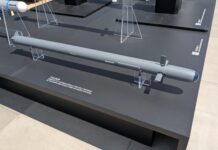European missile house MBDA is continuing to adapt its processes in a complex geopolitical environment that is producing intensifying requirements from its customer base.
Delivering the company’s annual press conference in Paris on 13 March 2024, MBDA CEO Eric Béranger noted that geopolitical events last year in the Middle East, such as the Hamas attack on Israel and the campaign against Red Sea shipping by the Yemen-based Houthi militia, had only compounded the increased demand from the company’s customers since the Russian invasion of Ukraine in February 2022.
“There’s one fundamental change in the world where we are living today, which is that force is challenging international rights more and more. This is the fundamental change, which is generating as a result a lot of reactions and a lot of demands from our customers, demands in terms of urgent operational requirements,” said Béranger. “So in 2023 you saw both the UK and France asking MBDA to integrate very quickly Storm Shadow and SCALP [air-launched cruise missiles] under aircraft [Ukrainian Su-24 strike aircraft] which had never been made for this. And you could see how quickly MBDA did this; we did this in a matter of weeks, whereas usually it’s more a matter of years to do something like this.
“There’s a huge pressure because there’s a need a need from our customers for accelerations … and we are very conscious of this need to accelerate. I can tell you we are at work,” said Béranger, adding that the current geopolitical climate was also “generating strong request in terms of volumes, increasing the volumes”.
Referencing the Russian invasion of Ukraine, the MBDA CEO noted that “Since 24 February 2022, time matters.”
Taking as an example MBDA’s Aster surface-to-air missile (SAM), which entered service in 2001, Béranger noted that, as a result of the missile’s original design processes, “there were a number of components crossing the Alps many times”, with the result that, prior to 2022, there were 42 months between an Aster order being placed and the missiles being delivered. MBDA’s current target, said Béranger, is now to get Aster deliveries to within 18 months of the missiles being ordered by 2026.
While MBDA is looking to raise Aster throughput by 50%, the company is also making efforts all across its portfolio, for example looking to quadruple throughput of the Mistral SAM, triple throughput of the CAMM SAM and multiply throughput of the Akeron MP anti-armour missile by 2.5.
In a process that first began during the years affected by the Covid pandemic but has now been accelerated, MBDA is also looking to secure and accelerate its production capacity by raising its level of stocks, said Béranger. As an example he mentioned the company’s stocks of nuanced irons required for missile production, which have been raised from the previous four to five tonnes to 80 tonnes. The company has additionally stockpiled enough titanium for “several thousand missiles”, said Béranger, as well as significantly increasing stocks of electronic components.
Regarding the company’s supply chain, while Béranger said “we don’t have any shortage today”, he did acknowledge that “there is a high tension in the supply chain and we can see lead times extending”, adding that “this is the reason why we are carefully analysing, domain by domain, supply by supply, the situation of suppliers, and when we sense a risk that certain components or materials may take longer to acquire, then we make stocks [to ensure supplies]”.
As a manufacturer of missiles in addition to various other defence systems, MBDA’s financial figures directly correlate to the geopolitical climate. Total revenues in 2023 were EUR4.5 billion, order intakes for the year were at a new record total of EUR 9.9 billion, with the company’s backlog reaching EUR 28 billion. Moreover, from 2023 to 2028, the company is investing an unprecedented EUR 2.4 billion at group level to raise production capacity and is planning to hire more than 2,600 new personnel in 2024.
In 2023 major domestic contracts for MBDA included orders for Aster SAMs for France and Italy, Akeron MP anti-armour missiles and Mistral 3 SAMs for France, Enforcer land combat missiles (which entered serial production at the end of 2023) for Germany, CAMM-ER SAMs for Italy, Sea Viper Evolution SAMs for the UK and Mistral 3 SAMs for Spain.
Béranger noted that in 2023 75% of exports beyond MBDA’s domestic territory were also to European nations, with significant contracts including CAMM SAMs for Poland and Sweden and the mid-life refurbishment of SCALP cruise missiles for Greece.
Of orders placed in 2023, 70% were for air defence systems, added Béranger, but he also pointed out new technology areas where the company is now active, including hypersonics/counter-hypersonics, laser directed energy weapons and loitering munitions.
The CEO noted that in the five years he has been with the company, the backlog has grown by 50%, revenues by 40% and headcount by 30%.
“So I think this is a very material proof that MBDA is not only sticking to its missions at the service of its customers, but also MBDA is evolving, and today, given what we see for 2024 – a lot of geostrategic uncertainties or at least challenges – I think that our mission, our duty, is really to prepare ourselves to serve our customers in whatever way they would need us, to be ready as much as possible to [deal with] anything unexpected,” Béranger concluded, “and this means that for us, really, our duty is to get ready, to be on board, and to power on.”



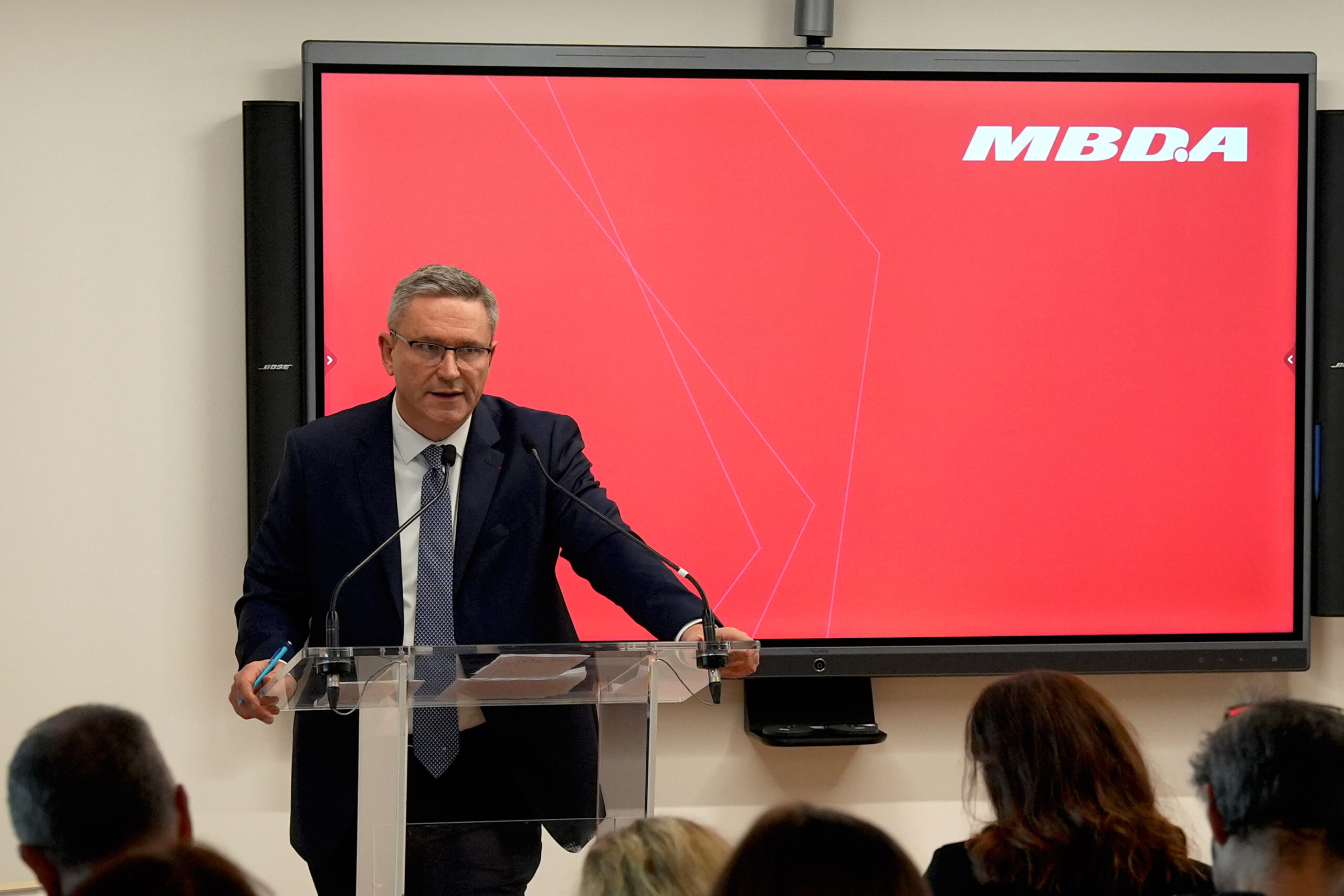


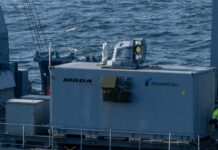

![Dual-use offensive/defensive interceptors: Panacea or chimera? An SM-6 missile is launched from the USS John Paul Jones (DDG 53) during Flight Test Standard Missile-27 Event 2 (FTM-27 E2) on 29 August 2017. [MDA/Latonja Martin]](https://euro-sd.com/wp-content/uploads/2025/09/SM-6-Launch_MDALatonja-Martin-Kopie-218x150.jpg)


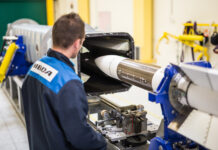
![Ripples in the air, rupture in the ether Pictured: 1L269 Krasukha-2 jamming system. Since 2008, Russia has greatly expanded its EW capabilities, and since 2022 it has gained valuable direct experience contesting the EMS in Ukraine, where continuous innovation occurs over very short timescales. [RecoMonkey]](https://euro-sd.com/wp-content/uploads/2025/07/1L269-Krasukha-2_RecoMonkey-Kopie-218x150.jpg)
